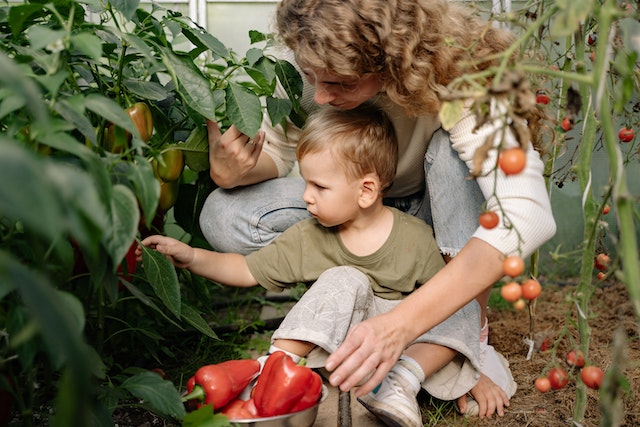Food Gardening
By Editorial Team AI

Having a food garden can provide numerous benefits, both mental and physical, for individuals and communities. A food garden is a piece of land where food is grown for personal consumption, and it can range from a small herb garden to a large vegetable plot.
Physical Health Benefits:
Growing food in a garden provides an opportunity for physical activity, including digging, planting, weeding, and harvesting. Regular physical activity has been linked to numerous health benefits, including improved cardiovascular health, weight management, and reduced risk of chronic health conditions. Additionally, growing and consuming fresh, healthy food can provide important vitamins and minerals needed for good health, and reduce the risk of chronic conditions such as heart disease, type 2 diabetes, and some cancers.
Mental Health Benefits:
Growing food in a garden can provide numerous mental health benefits, including reduced stress and anxiety, improved mood, and enhanced sense of purpose. Spending time in nature, connecting with the earth and observing the growth of plants can provide a sense of calm and tranquility, which can help reduce feelings of stress and anxiety. Additionally, having a sense of accomplishment from growing food, as well as a greater sense of control over one’s food choices and supply, can contribute to improved self-esteem and mood.
Community Building:
Gardening in a community context can provide opportunities for social interaction and community building. Sharing skills, tools, and resources can foster a sense of community and belonging, and working together to grow food can provide a sense of shared purpose. Furthermore, sharing the food produced in the garden can create a sense of community and strengthen social bonds.
Environmental Benefits:
Food gardens can also have positive impacts on the environment. Growing food locally can reduce the carbon emissions associated with transporting food long distances, and can help conserve natural resources such as water and energy. Additionally, food gardens can provide habitat for beneficial insects and other wildlife, which can help support biodiversity.
In conclusion, having a food garden can provide numerous benefits, both mental and physical, for individuals and communities. By promoting physical health, improving mental health, building community, and benefiting the environment, food gardens can play an important role in promoting overall well-being and happiness.

